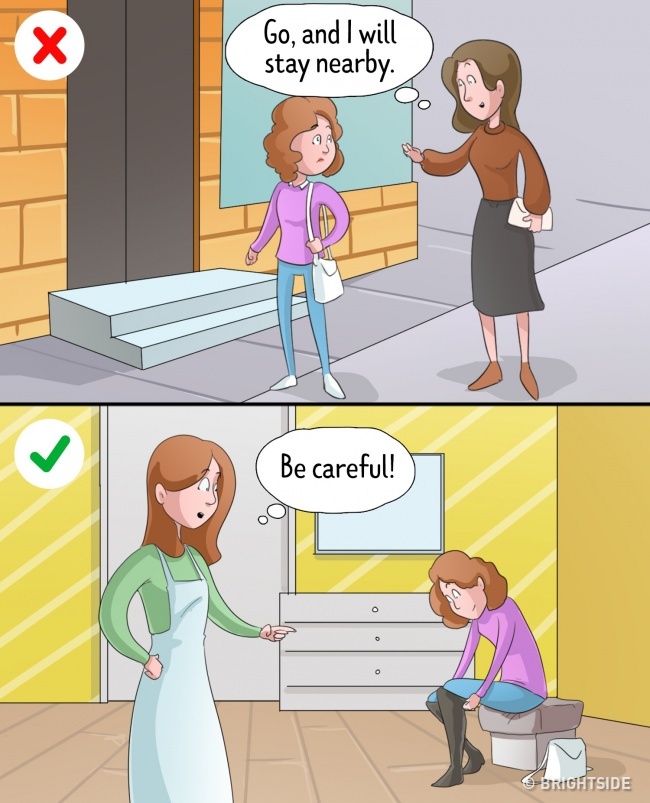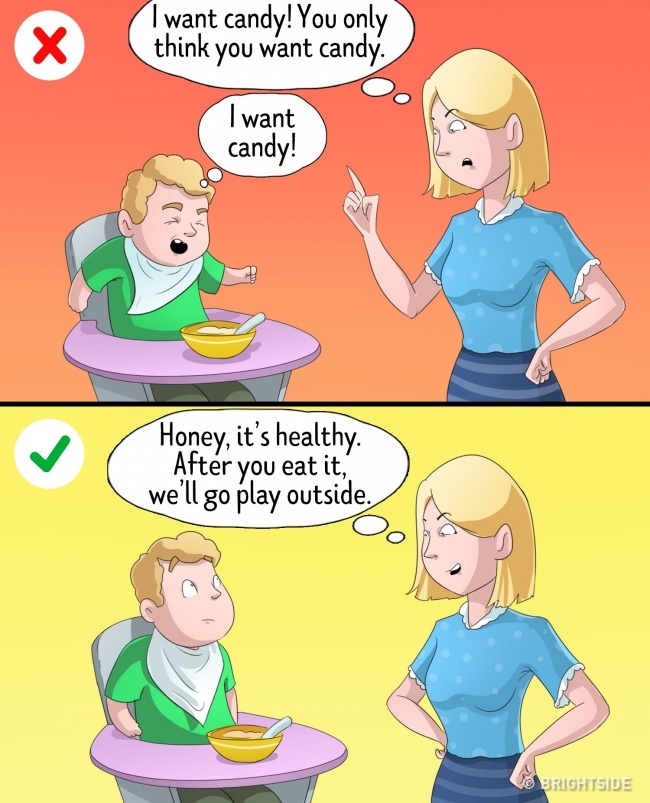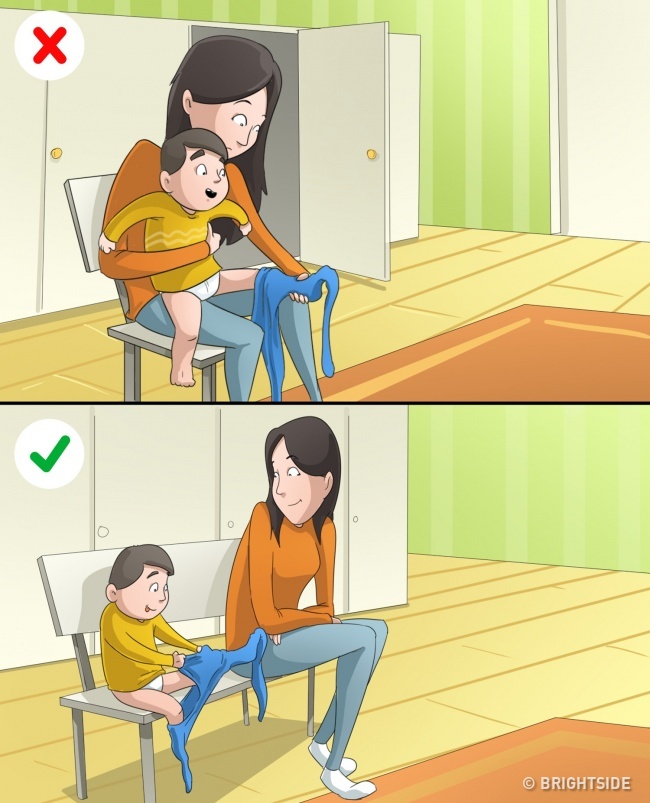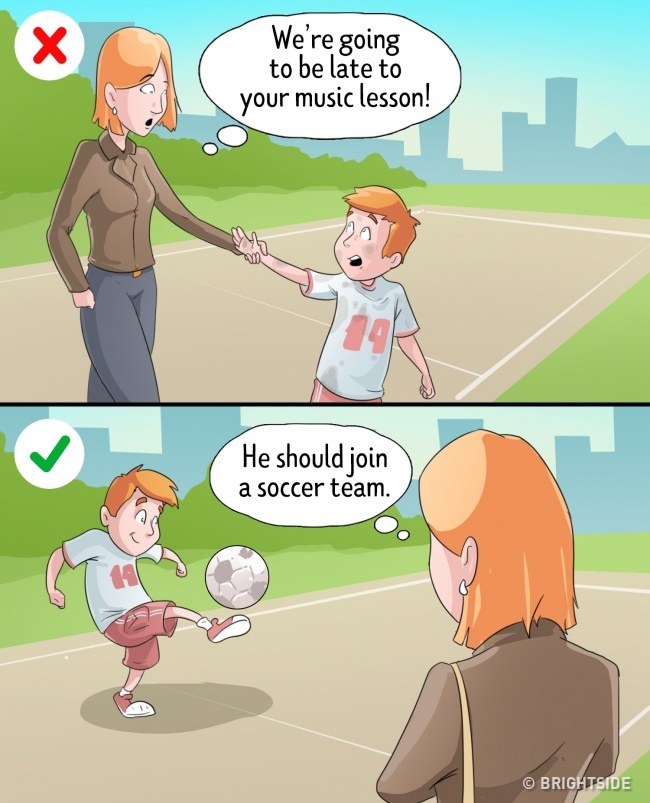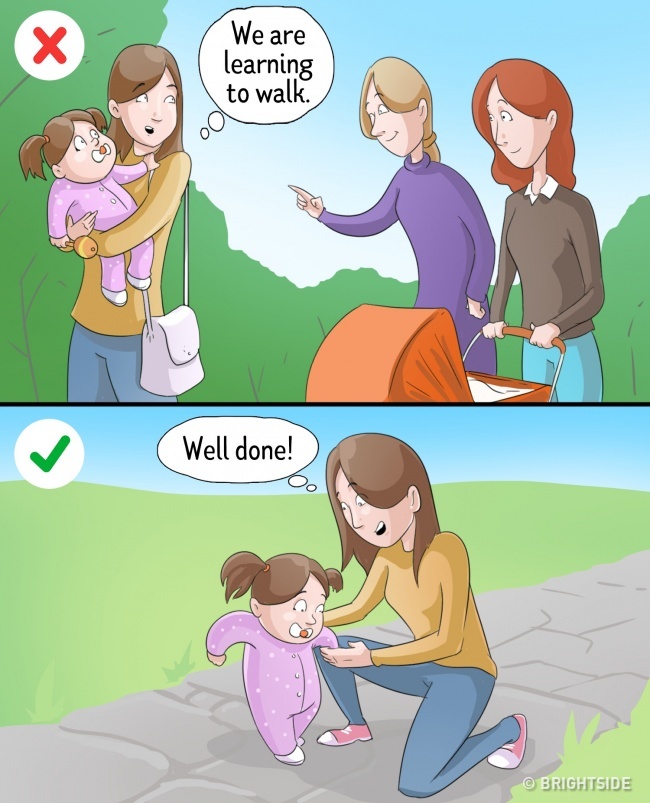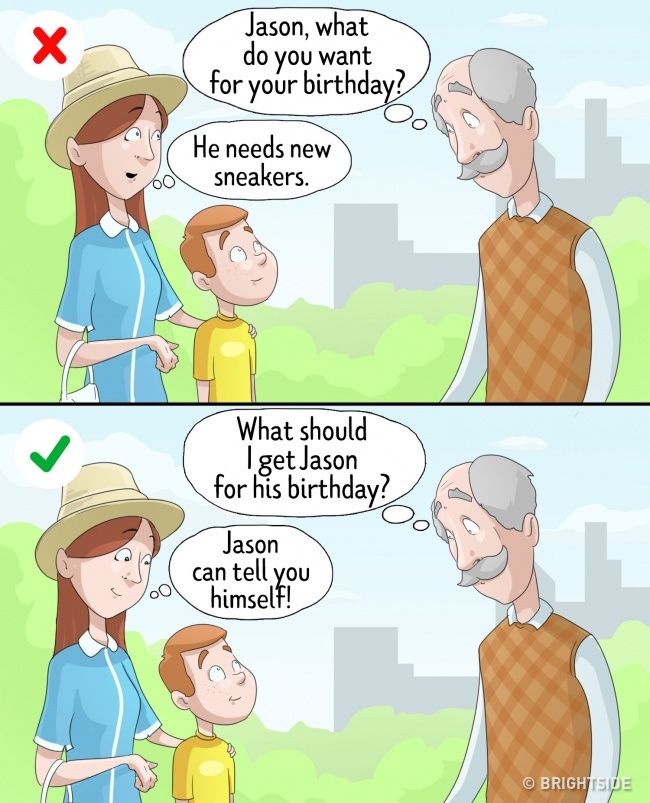Sometimes parents help their children too much. Adults can’t live their children’s lives for them. Our task is to help them grow and gain their own experience, and it’s important not to overdo it.
Smalljoys has collected a few things that we should never do for our children. Take these things into account, and your children will thank you.
1. Talk for them
It all starts with those happy moments when a small kid is asked, “Oh, what is your name?” and we, the parents, want to respond, “It’s Jason.” It would be nice if this habit ended once a child learns to speak. But no, we manage to give answers even for our teenage children everywhere: in stores, at home, and in other places.
And what do we have in the end? We take from our kids the chance to answer for themselves. You can give a hint to a kid about what to say if they ask you to. But you definitely should never talk for them.
What to do? Next time when you want to speak for your child, try to stop yourself. Let them speak for themselves.
2. Be their friend
Many parents try to become friends with their children, and they don’t want their kids to have any secrets from them. We can easily understand why parents want this, but let’s try to look at this a little deeper. What is a friend? It’s a person you can talk to on equal terms. Yes, you can tell anything to a friend.
However, parents have a different role: they care about us and love us. There is no need to try to be very close friends. Let kids look for their own friends among people their own age. Mom and Dad are there for when kids need love and support.
What to do? Say no to being too close in a relationship. Learn to support and respect each other.
3. Want vs need
We know very well that broccoli is much healthier than candy and that new sneakers are more useful than dolls. So we dictate to our children (sometimes we hide it, and sometimes we don’t) what they should want. It’s like the joke, “Mom, am I hungry?” “No, you are cold and you want to be in a warm place.”
What do such things lead to? They suppress a child’s “me,” their wishes, and their goals. Such things also lead to being a blameless victim or even a rebellion against everyone.
What to do? Search for the needs and wishes of the child. If you need to teach them good habits, don’t do it violently. Do it smoothly.
4. Help them too much
2- and 3-year-old children can already put on and take off different clothes by themselves, wash cups, and put dirty clothes in the washing machine. More than that, at this age, children really want to do it by themselves.
And what do we do? We dress them almost until they get married. We support this behavior with the arguments “He can’t do it!” We feed them, we don’t let them do it themselves, and we don’t let them experiment. And later on, we are surprised when a teenager is untidy or doesn’t want to help their mother.
What to do? Let the kid do as much as possible by themselves.
5. Choose their tastes
We often try to impose our music tastes, book preferences, and clothing styles on our children. It is with good intentions, but it diminishes a child’s individuality. And in many cases, it leads to a protest where kids do the complete opposite.
What to do? Watch your favorite movies and listen to the music you love yourself. Discuss your idols with your children.
6. Count their money
In every child’s life, there comes a moment where they have their own pocket money. What you shouldn’t do is interrogate children and try to find out how much money they have left. The worst thing you can do is check their bags or pockets. This kills trust instantly.
Does it really matter how much money your son or daughter has left? Let them save for something they want.
What to do? Teach your children to be financially successful, and let them do what they want with their money.
7. Choose their hobbies and interests
Mom wants her daughter to play the violin and is ready to take her across the entire city to music school 3 times a week. And Dad wants his son to play football every evening. And parents often subconsciously try to impose a hobby on their children.
What to do? Be patient, and watch your kids. Notice their interests and inclinations. Ask them what they like, and then let them develop in this field.
8. Take their successes as yours
Caring “Insta-mothers” post a lot of pictures and write, “We have eaten!” “We have started to walk!” and so on. Of course, they support their children a lot, but still, these are not the mothers’ successes —they are the children’s! Who is “we”?
And when the children grow up, things get even more serious. Moms and dads start telling about how their kids finished college and found jobs. And they do it like these are their merits only. It is easy to understand how much children hate this.
What to do? Be happy for your children’s successes, but don’t confuse them with your own.
9. Choose their presents
When a child can already speak, they have the right to choose what they want as presents. And it doesn’t have to be another T-shirt or a toy that is supposed to develop them educationally.
Of course, it is not always possible to let them choose. But it gives children the most important thing: the ability to choose, to make decisions, and to face the consequences. Such skills can never hurt in adult life.
What to do? Let your child choose the presents they want.
10. Intrude in their personal lives
This is especially true for the parents of teenagers. Kids have their own friends and first dates. It is normal and absolutely natural. An interrogation of “Who is that guy?” will only make your child annoyed. Many children will share such personal things with their parents if they feel safe.
What to do? Instead of interrogating your child, let them have their own private space. Don’t ask too many questions if you see that they don’t want to share details. And, of course, don’t ever secretly read your children’s texts.
What parenting secrets do you know? Share them in the comment section below!
© photo : Igor Polushin , BrightSide




